The Ambassador of Israel in Bucharest, Reuven Azar, gave an interview to the AGERPRES National Press Agency, at the beginning of his mandate, in which he talks about the perspectives of collaboration with Romania in the field of security, especially defense technology, but also in agriculture, IT, constructions, renewable energy, healthcare.
The diplomat also referred to the current situation in the Middle East, his country's relationship with the European Union and how the Israelis view Romania.
He highlighted the collaboration between Israel and Romania in the field of security as 'unique'.
"What is unique about this relationship is that, unlike other countries, Israel does co-production with Romania. We don't just sell, we cooperate in the field of technology, we do co-production. And every system that comes from Israel has been tested in combat conditions, comes with training, with methodology and it's very particular. Israel is a different state from the rest, in the sense that we don't sell large platforms, but we have advantages in specific fields - cyber, electronic warfare, anti-missile defense, aeronautics," the ambassador says .
Also, Reuven Azar says that, in the last decade, the image of Israel has changed, from a country associated with the conflict in the Middle East with Palestine to a nation to which European countries come for economic cooperation.
"Europe is very important, an important partner for Israel. (...) The conflict is important and we have to solve it, but it cannot be a condition for the common interests we have. So we focus on the bilateral side, because many European countries come to do business in Israel," the ambassador says.
Regarding the situation in Palestine, the diplomat says that there is "a crisis of leadership" there, and Israel does not have "a reliable partner in negotiations".
"Ultimately, we have to create stability and we do this by supporting our neighbours economically as much as we can, and we also try to create the necessary conditions to resume, at some point, the negotiations. (... ) The main problem in the societies of many countries in the region is that, first of all, the political establishment is weak, and when there are elections, radical Islamists cope", he adds.
The State of Israel, the ambassador announced, is willing to collaborate with Romania also in the field of agriculture, especially in terms of offering new technologies for farms and irrigation systems, but also in other sectors - green energy, hitech, healthcare, construction -, in which Israeli companies can bring foreign direct investments.
AGERPRES: Recently, the Romanian Minister of Defence was in Israel and there were reports about his visit in Israel that he was going to talk especially about reports from Haaretz. Haaretz was reporting that the bilateral exchanges in terms of security exchanges between Romania and Israel have reached 1 billion US dollars. Can you talk about the future of the exchanges between Romania and Israel regarding the defence?
Reuven Azar: First of all the future is based on the past, and we have a very rich past of trust and co-operation, for years, between the Israeli and Romanian security establishments, but also in the field of purchases and sales. What is unique about this relationship is that, unlike other countries, Israel does co-production with Romania. We don't just sell, we do technology cooperation, and we do co-production. And every system that comes from Israel is combat proven. It comes with training, it comes with methodology and it's very specific. Usually, Israel is different from other countries in that we don't sell big platforms but we have advantages in very specific fields like cyber, like electronic warfare, like missile defence, like aeronautics, etc. So all these issues have been discussed and we feel we are now in a moment in which we can upgrade substantially this relationship.
AGERPRES: This upgrade would also focus on acquiring radars? The reports referred to radars, drones, technology exchange between Israel and Romania. Can you elaborate?
Reuven Azar: I cannot get into technicalities, because at the end of the day the security establishments, the ministries of defence of Romania and Israel will have to elaborate all these details and get into agreements. But, I can certainly say that the main topics that we are interested in are things that have to do with the relative advantages that Israel has to offer, which I have mentioned before the whole issue of air defence. I am sure that we can reach the situation which the suitable systems can be provided, can be discussed. After the discussions well know exactly which system we will either sell or co-produce.
AGERPRES: Did you also talk about interoperability with NATO defence system? Because Romania is part of NATO and acquiring defence technology from Israel will actually put interoperability into question.
Reuven Azar: There are solutions in this regard, because usually, first of all Israel, part of the Israeli companies have already factories here in Romania, and also they co-operate with European companies that actually meet the standards of interoperability. Although there are some limitations when it comes to different systems, there are also opportunities to overcome that by doing co-production.
AGERPRES: Since you were talking about co-production, there have been discussions about the offset question, the fact that if you buy defence mechanisms from different countries, then that country should invest in your own industry, into your own defence industry. Is Israel open to this?
Reuven Azar: Actually, it is a fact that Israel has been the most open, and we had in the past very elaborate schemes of offset that actually usually Romania doesn't necessarily have to that extent with other countries. I think, in that respect, we will also have a pretty good record.
AGERPRES: Regarding the acquisitions that Romania would make from Israel, in the field of defense, do you approach the Government-to-Government (G2G) option or are you looking to a tender-based business?
Reuven Azar: At the end of the day, it depends on Romania itself. We feel that there are different possibilities when you get the security ministries, the defence ministries talking together the potential of a government-to-government is higher, because then you can discuss more sensitive issues, you can get to very specific solutions and, when you issue a tender, it's just a matter of meeting that tender and the negotiation process is less efficient in that regard. So, we have G2G schemes with many countries in Europe. And, of course, at the end of the day I believe it's going to be a combination of both, because there are some requirements that the Romanian government has to meet: sometimes they can do G2G, sometime they can't. You'll have to sort it out.
AGERPRES: Coming back to Romania and the Jewish community in Romania, which actually links the two countries there have always been discussions about the museum of the memory of the Holocaust, which is a long-term project that was always discussed but it never came to reality. Did you talk about this yet with the Romanian officials?
Reuven Azar: Actually today I am just coming from a very important event where Prime Minister Ciuca signed the contract with the direction of the museum. I think that the project is finally moving forward. The design was already granted to a company and now there's going to be a direction and funds. My understanding is that there have been found. This is a very important project, and we are very glad that the Romanian government is doing it. I think it's going to serve first and foremost the Romanian population, because it's going to be much easier to learn about that dark period in our history, in your history, which is very important for generations to come. This is going to be a great opportunity to educate the new generations. So, I'm very glad about that.
AGERPRES: Will Israel get involved into this project directly through funds or objects, as far as you know?
Reuven Azar: Usually there are many museums, remembrance museums that were established in Europe and other places, so in terms of the standards of how you are doing it, I think they are pretty much known and the institutions that are working on Holocaust remembrance cooperate with each other. There is Yad Vashem in Israel, there is the Elie Wiesel foundation here that is in contact; there is Aira, there is the Holocaust Museum in Washington. They cooperate between themselves, and I believe that at the end of the day they will be able to support the process in any way that the Romanian government asks us to.
AGERPRES: About the situation in the Middle-East, and especially the conflict between Israel and Palestine, my question would be because it's a long-lasting conflict and apparently there is no solution for peace in the near future: does Israel see any country or any union as a mediator in this conflict? Can you point out one?
Reuven Azar: The Middle-East has changed in a very, very significant way in the last decade. Because, in the past, this conflict used to be kind of the central issue in the international politics, and it ceased to be that way for many reasons: first of all because of the decrease in importance of the Middle-East geostrategically, second because of the Arab Spring and the Arab turmoil that actually torn countries apart, because of the fact that there are many other conflicts in the Middle-East that are much more important and disastrous in terms of consequences. Look at Syria for example, which out of the 24 million, 12 million people either left the country or were moved from their houses. Look at the conflict in Iraq, to what it's going on between Iran and the Sunni states. So, what happened in the last few years created the situation which many countries, Arab countries in the Arab world changed their view of Israel from enemy to actually a country that can support their national security. That's why you have the Abraham Accords, and that's why there is a different view about Israel in the region, in general.
In the context of the Palestinian issue, what happened is that crises in the Palestinian society resemble also the crises that you have in the larger Arab world; so, although both we and European countries and the US invested a lot in trying to help the Palestinians to create their own institutions, there is a crisis there; not only the difference between Hamas and Fatah, but also a crisis of leadership. And that creates a situation in which it is very hard for Israel to have a reliable partner for negotiations. We offered, several times in the past, very generous peace plans to our Palestinian neighbours, it didn't work, so right now we think we are concentrating in trying to keep civility as much as we can, and convince our neighbours that the way of terror is not going to work for them. When you look at the region you see which countries are controlled by terrorists. They are not in a good shape. Look at what's going on in Gaza, what's going on in Lebanon, etcaetera. All these countries with militias are unstable. At the end of the day we have to create stability, and we are doing it by, first of all, supporting our neighbours economically as much as we can, and also trying to find out, to create the conditions that we need in order to renew at some point the negotiation.
AGERPRES: You are talking about a crisis of leadership, especially in Palestine. Would the support of Israel for the long debated elections in the Palestinian territories be a solution?
Reuven Azar: It's a good question. I'm not sure; you know that the main problem in many of these countries in the region's societies is that on the one hand the political establishment is weak, and then when you have elections the Islamic radicals, they cope. So the issue is how to create the situation which this will change. I don't know. We cannot interfere in their own business. They would have to sort it out by themselves. What we can do is do the best we can, first of all to keep our security and economic interest and then to support processes that they will promote if these processes are constructed.
AGERPRES: When you took over your ambassador mandate here in Romania, there were attacks from Gaza to Israel. How does this regard the scenario? Does that regard Gaza as a separate entity from Palestine? What are the scenarios for peace that involve the Gaza strip?
Reuven Azar: We left the Gaza strip with the hope that we will be able to maintain stability. Unfortunately, the Hamas terrorist organisation took over. We are trying to get the situation stabilised by building deterrents. This is something that I think it's very common among the security challenges that countries have. Sometimes you have an adversary that you cannot just defeat. I don't think that the Israeli society is interested in invading Gaza again. So, if you are not going to militarily solve it, then you have to create the conditions in which there will be interest on the other side, first of all not to attack you, and second to engage in a positive and constructive dialogue. Right now, Hamas is not interested in peace with Israel. So, we will have to be patient and we will have to create the capabilities to have the deterrence that we need so Hamas stops this kind of behaviour.
AGERPRES: On Monday, there was the reopening of the EU-Israel platform of dialogue that involves all the ministers of foreign affairs but also the prime minister of Israel. Given the current security situation, is Israel gaining a louder voice when it comes to the dialogue with the European Union?
Reuven Azar: I think that Israel became generally speaking much more attractive because it is not only a security power, but it's also an economic power. I saw when I was working at the prime minister s office what are the issues that usually countries in Europe, what is their agenda when they come to Israel. Usually, they are first and foremost interested in Israeli innovation, in co-operation, economic co-operation, in investments, in creating the frameworks that are needed in order to untap the economic potential. Israel is part also in Horizon, they are in the facility of the European Union. We want to expand our relations with the European Union also to the cultural field, to the digital field. We have an open skies agreement with Europe. So, Europe is very important, it is a great partner for Israel. Increasingly, we want to deal with that instead of only the issues that have to do with conflict. So, the conflict is important and we have to sort it out, but it cannot be a condition to fulfilling the common interest that we have. So, we saw it first and foremost in the bilateral field, because many countries in Europe were flocking to Israel, to come and do co-operation. It took some time to transpire also to the multilateral field because there are countries that were more conservative in that regard. So, it took some time in order to get to this moment, but I think it's a very important achievement and we can build on it in order to expand our co-operation further.
AGERPRES: Given the reinforcement of this dialogue regarding the economic part, would it make the European Union a mediator when it comes to the conflict?
Reuven Azar: At the end of the day the whole issue of who's going to be the mediator, I think, can be important but it's not the main question. The main question is whether we are going to have the conditions, to have the interest on both sides to have a conducive dialogue that gets us to a certain result. We saw that when such interest exists, like for example between us and the Arab countries in the Gulf, between us and Egypt or Jordan, then we find the way to co-operate and the mediation is not the main topic.
AGERPRES: Talking about economics, high officials talk about food crisis, that there will be a food crisis in the near future. Israel has state-of-the-art agriculture. Is Israel open to collaborating with Romania in terms of agriculture and do you have facts about it?
Reuven Azar: Sure. I'll tell you exactly what is my working plan, cause that's what I've started to do. First of all in Romania you have a huge agricultural sector, you have the big farms, Israel can cooperate with big farms on technology that has to do with increasing the yield and increasing the control, the sensors that you need in order to increase the yields. Then, there are the medium-sized farms, the small farms in which we can cooperate, especially in the field of irrigation. What I'm trying to understand now is how the Romanian irrigation sector works and what we can do in order to take out more of that water that you already have, because Romania is very rich in water, but there are some parts of Romania that lack it. So, Israel is probably the most efficient country when it comes to water management. We have the system which we first of all prevent leakage, we have an integrated system with a lot of sensors, we purify 90% of our sewage water and we irrigate 70% of our crops with purified water.
These solutions do not necessarily fit the Romanian agriculture, but some of these solutions can fit. There is desalination, and I think desalination is what Israel can do for Romania, but the bottom line is that we can assess the situation together and see what are the best solutions that we can implement. So, there is the co-operation between governments, and then there the co-operation in the private sector, and we have to push both of them. Israel imports lots of grain from Romania, and now we also want to start importing not only live animals, but also processed meat. And we are working on that, because Romania can be a huge supplier for the Israeli market. Our population is growing very, very fast and we are opening our markets for agricultural produce to come and Romania is a great partner. So, we are working on that full steam ahead.
AGERPRES: But is Romania prepared, because you are talking about processed meat. Is Romania prepared to meet the requirements of the Israeli society when it comes to processed meat?
Reuven Azar: It's a professional issue that has to do with phytosanitary requirements and the relevant services are already in contact. They are going to do their work. There are some private sector companies that are pushing the government to do this. I believe we can do this, and it's doable, and we're going to work until we reach it.
AGERPRES: High officials also see an energy crisis, and the EU is pushing towards green energy. How is Israel able to support Romania or support the European Union in terms of technology, in terms of knowledge?
Reuven Azar: Many things are already happening. Romania is attracting a lot of foreign direct investment including investment from Israel. This crisis that we're passing now is also a great opportunity. I think what Winston Churchill would say: 'never get a good crisis to waste.' Romania actually is using this crisis, because you are attracting a lot of foreign investment. Israel is a pretty strong player in the investments in renewable energy. There are actually several companies already operating in Romania, and the biggest solar field being built today in Romania in an Israeli investment. It's a company traded on the Tel Aviv Stock Exchange. It operates from London, but it has Israeli ownership.
So, we are already engaging in that. I've had a very good meeting with the minister of energy about this, and we are going to continue that. Some of these energies are very innovative; some of them are technologies that already exist. We have to combine between the technology that already exists, is proved and can be implemented on the ground, and this is already happening, and the developments in green energy, like for example hydrogen and many other fields.
The field of hi-tech is conducing not just for the agricultural sector, but in general. We are going to promote that as well. In Romania, you have a pretty good vibrant hi-tech sector which has a pretty good relative advantage in cyber, IT, fintech. So, we are mapping that and trying to see how can it fit to the Israeli market, what kind of co-operation we can have between the Israeli hi-tech companies and the local ones in these fields that I mentioned, but also in other fields.
AGERPRES: When you are talking about economic co-operation between Israel and Romania, are you talking about private co-operation, government-based co-operation, and how the two merge, actually?
Reuven Azar: Usually it merges in the classical way in which the government has to supply the tools for the private sector to operate. So, the main entrepreneurship and co-operation comes from the private sector: they do the investment, they do the co-operation, and the government has to support them. My job as a government is to create the situation in which first of all I give the information, the people that the entrepreneurs need; second that I help them with the bureaucracy here and in Israel in order to overcome and remove their obstacles, and once this is done, we can also organise very specific delegations that will deal with pin-pointed issues. For example, this year we had two delegations to Oradea and Timisoara that dealt with digital health - health is a huge sector for co-operation, and between Israel and Romania we already have our academic institutions working together for many years, and now it's about time to start implementing it in also projects of private entrepreneurship. When visiting Oradea, we spoke not only with the local government, but also with local hospitals. We also had an innovation delegation. We're going to bring a water delegation also to come to other places in Romania. So, we can do very, very specific things, but at the end of the day in order for the private sector to really seek all opportunities we need to remove obstacles. For example, there are many Israeli construction companies in Romania. They want building permits, et caetera, et caetera. We need to help them to continue the flow of investment.
AGERPRES: At this point in time can you imagine what an Israeli businessman or Israeli businesswoman think of Romania? What do they see when they think about Romania?
Reuven Azar: They see a country that is very stable, very secure. They see a country that is a member in the EU, that is a member in NATO, that is pretty open and inviting for foreign investment. You have many Israelis coming here. One of the first things I did when I arrived to Romania is to meet with the Israeli businessmen operating here so that they inform me what are the conditions. This is a very vibrant business community, and many Israelis are very interested in what's going on in Romania, we want to encourage them even more. We also are taking advantage of the personal connections between Romanian Jews that emigrated to Israel in the second generation that are also very interested in the business here. That's a huge support that we get in order to untap the potential in full.
AGERPRES: Presently, the European continent is experiencing a conflict after decades of peace. Israel has lived in conflict ever since its formation as a state. Is there any advice Israel could give to a Europe that is now in conflict?
Reuven Azar: I think that we have to be humble, we have enough trouble for ourselves and we have to deal with our own troubles. But, at the end of the day it's an issue of self-reliance. Alliances are a very good thing. In fact, as I said before, Romania is part of NATO, part of the EU, it's a great asset for the Romanian national security and additionally you get creating your own capabilities in order to, first of all, contribute to the alliance, but also contribute to yourself. As much as you get self-empowered not only you're safer but you are also more respected by other players that come to you to cooperate. This is what we see in Israel. We are investing 6.5 per cent of our GDP in Defence. 6.5. Imagine that. The average European is 2 per cent, I think. The fact that this thing changes in Europe I think it is important, because I think that at the end of the day, when Europe is safer and more trustworthy of its own capabilities, it cam aslo project the values that we all believe in, the value of democracy, of stability, of prosperity, of free markets. This is what we share with Europe, this is what we share with Romania, and we want our partners to be strong.
AGERPRES: And the last question is more technical as regards your mandate as ambassador. Did you start learning Romanian?
Reuven Azar (speaking in Romanian): I've started to learn Romanian for four-five months with a Romanian teacher in Israel (continues in English) and I hope I will continue to strengthen it.
AGERPRES: Do you have a deadline? To learn it?
Reuven Azar: (laughing): I don't have a test, it's not a requirement but I want to learn Romanian because this is my fifth mission abroad and I always knew the language of the country I went into and also because I'm interested in the Romanian culture and history and I'm interested to interact with the Romanian people. So, it matters that I will improve my language skill so to complete my mission in a much better way.

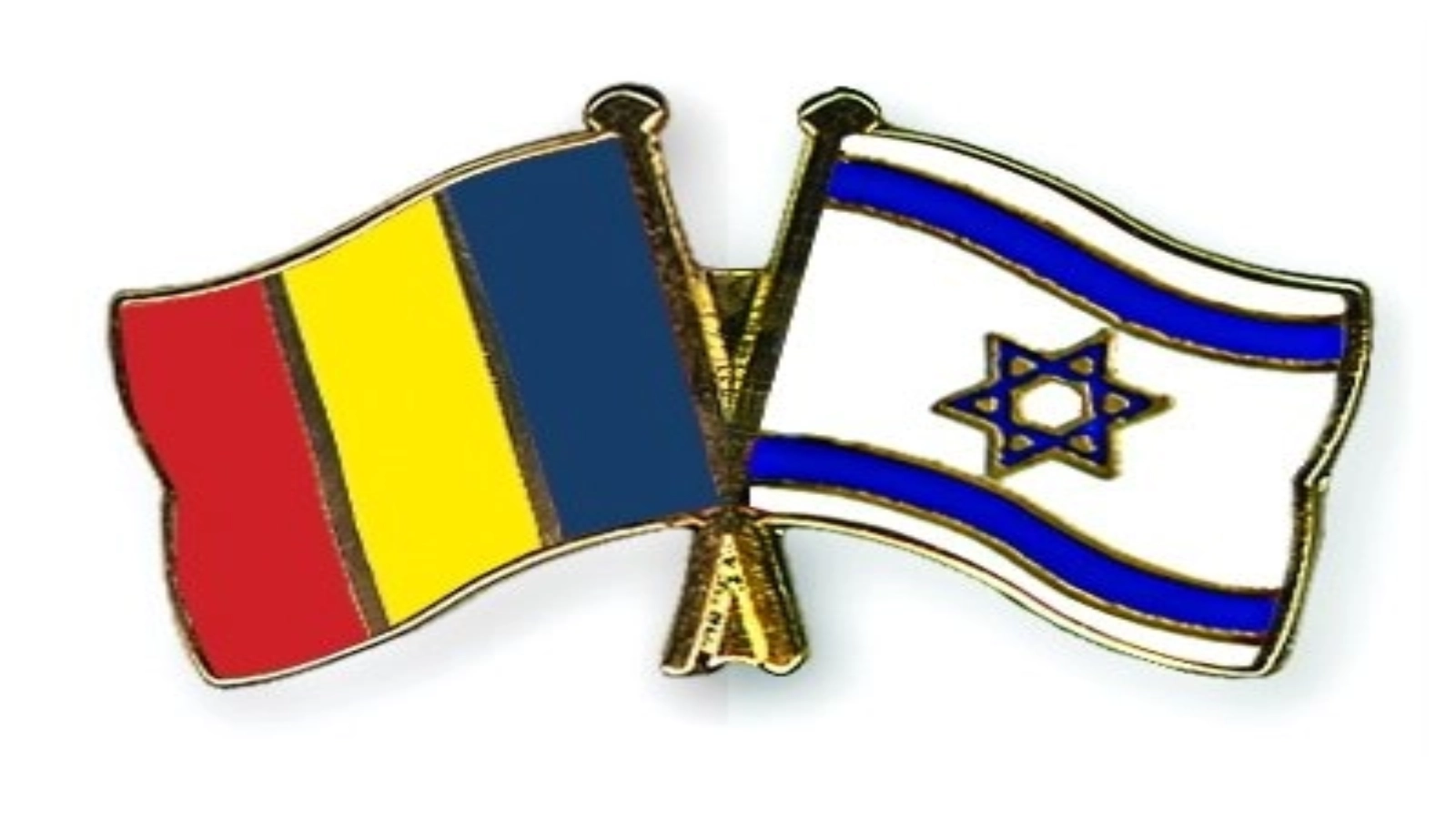
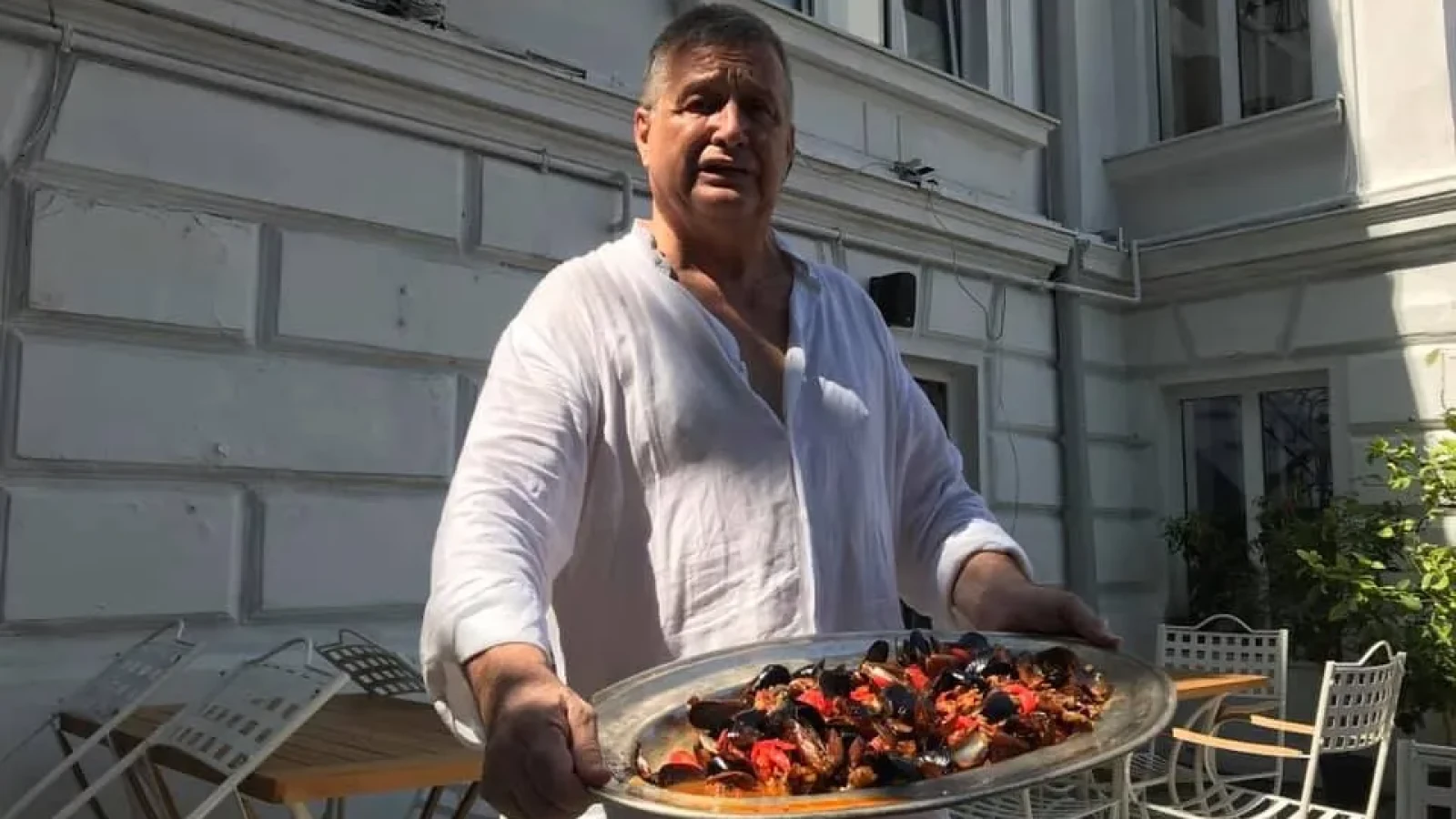














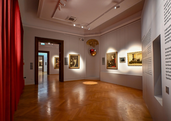


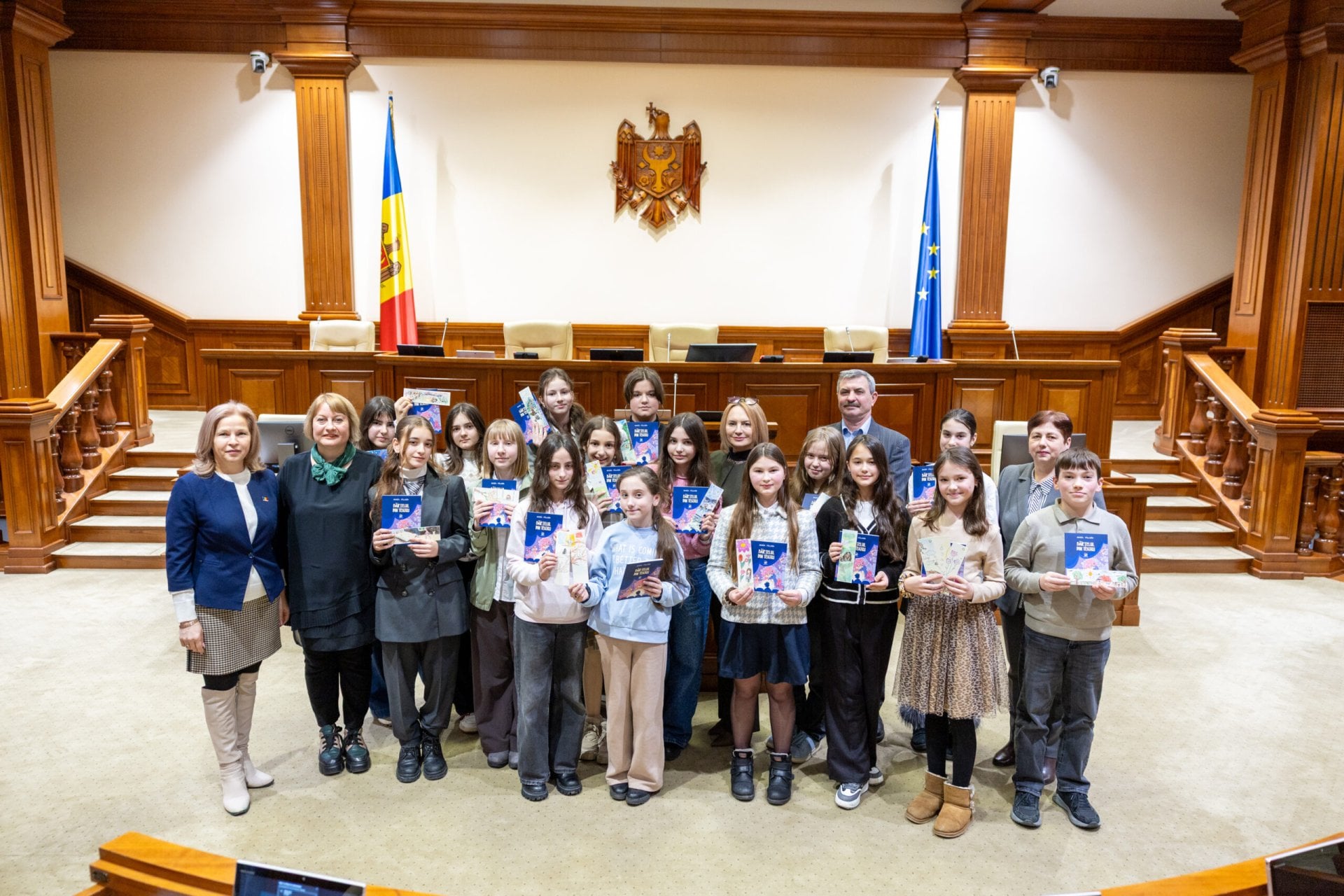
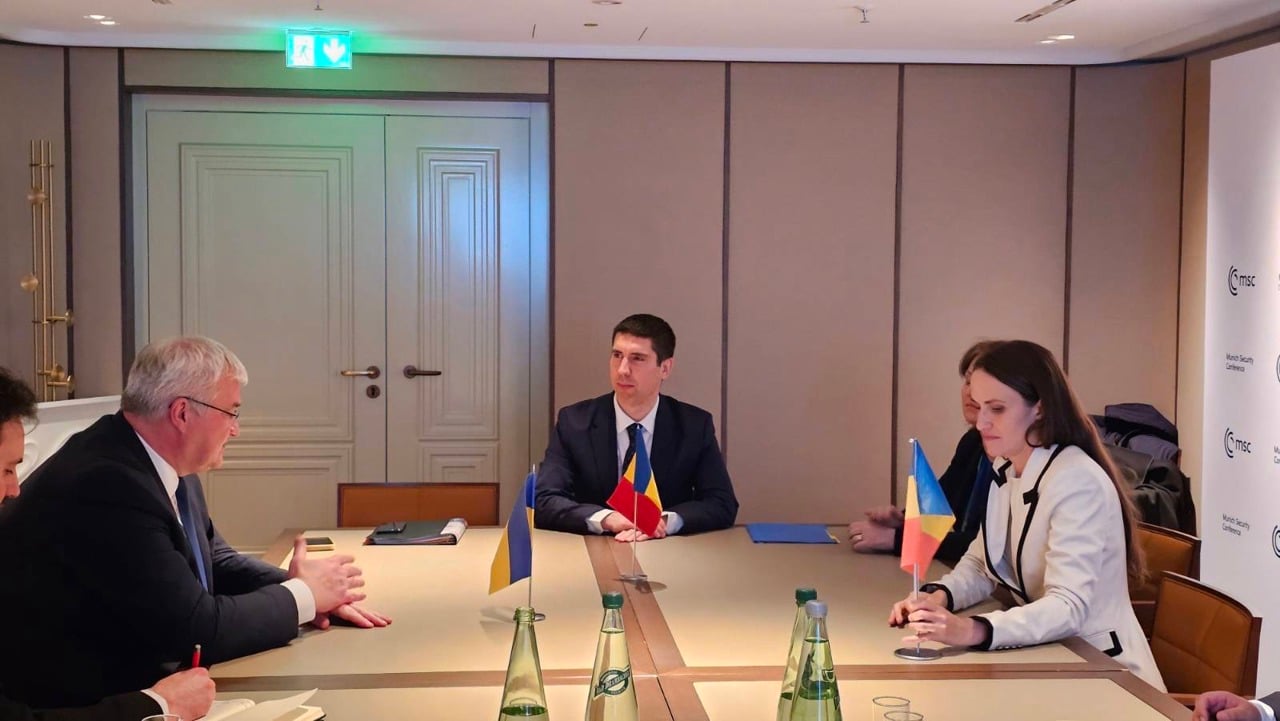
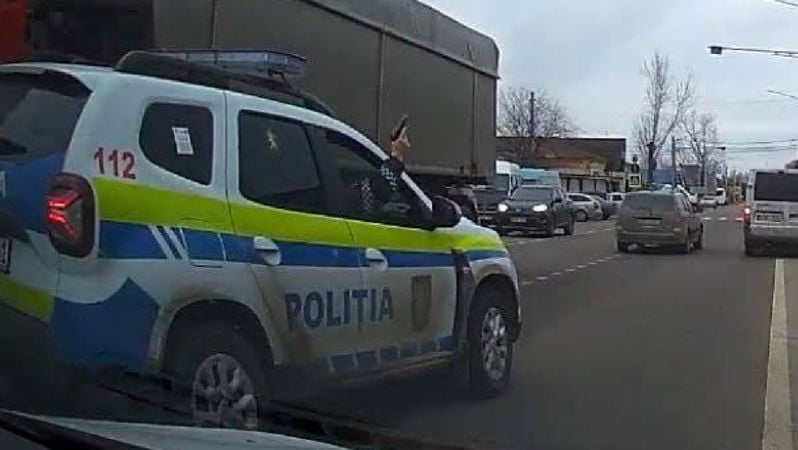
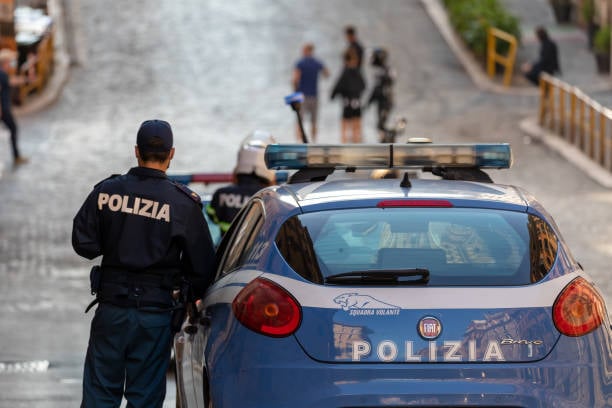





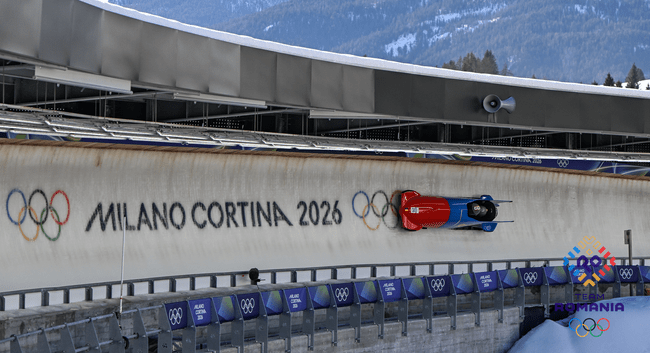


Comentează